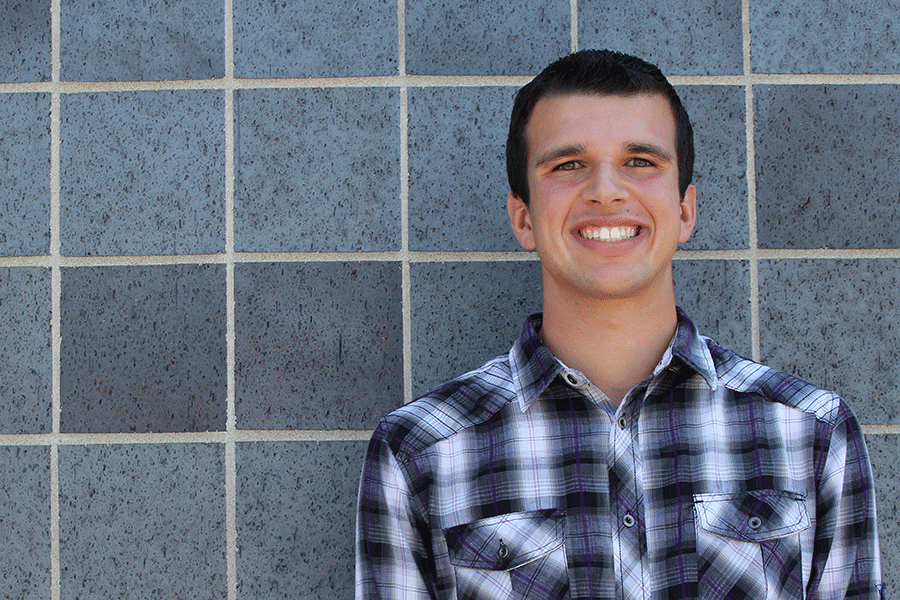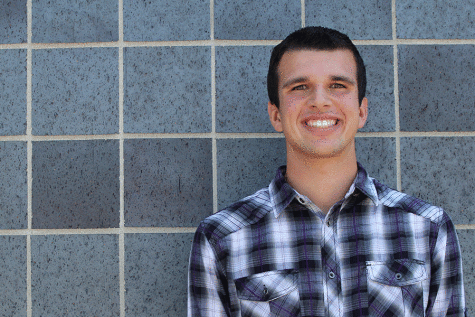Terrorism has no religion
Calling acts by the Islamic State group ‘radical Islamic terrorism’ creates prejudice and is inefficient
March 9, 2016
Every time I watch a Republican presidential debate or town hall, at one point or another I inevitably hear presidential candidate Ted Cruz criticize president Barack Obama for not using the phrase “radical Islamic terrorism.” And, every time I hear those three words spoken — whether by Cruz or another GOP politician — I cringe.
This presidential election cycle, Cruz in particular has been outspoken in wanting Obama and others to “name the enemy” by referring to terrorist acts as radical Islamic terrorism. However, the GOP’s penchant for referring to radical jihad as radical Islamic terrorism is actually counterproductive in the fight against terrorism.
While the GOP has always been critical of Democrats, president Obama specifically, for not saying radical Islamic terrorism, the issue became prominent late last year. In the wake of the November 2015 Paris terror attacks and the December 2015 San Bernardino, California, terror attack — both of which involved attackers with Islamic State group affiliations — Republicans had a field day on Obama and the Democratic party for not calling the attacks radical Islamic terrorism. Some of the candidates, especially Cruz, have alleged that the U.S. can’t defeat terrorism if it doesn’t call it radical Islamic terrorism.
This notion, that the leaders of our country must use a certain phrase when fighting against terrorism, is absurd. Those three words — radical Islamic terrorism — don’t hold any magical power. If Obama starts saying them, we won’t be any closer to defeating terrorist threats than we were before.
Believe it or not, there’s a reason why many people steer clear of calling terrorist groups like the Islamic state group or al-Qaida radical Islamic terrorists. In doing so, they associate an entire religion, with more than 1 billion adherents, with radical, murderous, oppressive people. The reality of the situation is, the Islamic state group represents about 50,000 people. Al-Qaida represents about 20,000. That is nowhere near even a significant fraction of the 1.6 billion Muslims worldwide.
This association is very hurtful. The U.S. needs all the help it can get to fight terrorism, and much of that help should come from Muslim countries in the Middle East. Saying terrorist groups are radical Islamic terrorists won’t help us form alliances with these countries, led by practicing Muslims.
If you look at the teachings of Islam, a peaceful religion that many say worships the same god as Christians and Jews, you won’t find much supporting violence. In fact, the fifth sura of the Quran says if someone commits a murder, “it shall be as if he had killed all mankind.”
Given this, by saying these groups act in the name of radical Islam, people like Cruz give them legitimacy. Clearly, radical jihadis are out of step with the teachings of Islam. However, when American politicians refer to jihadis as Islamic terrorists, the politicians further instigate the jihadis by associating their terrorism with Islam — making it so that, no matter how radical they may be, they can justify their terrorism through by its flawed association with Islam.
There’s a bigger problem with calling jihadis radical Islamic terrorists, too. There are Muslims in the U.S., and the idea that terrorists practice radical Islam creates anti-Islam prejudice among Americans. Associating benevolent and religious Americans with the Islamic State group, even through the words we use, can lead to American Muslims being judged for their beliefs. How else did we end up with a Donald Trump, who advocates banning all Muslims entering the U.S. and whose supporters berate Muslims at his events, as the GOP presidential front-runner?
Let’s look at a comparable situation: The Westboro Baptist Church preaches hate against LGBT people, Jews, soldiers, celebrities and politicians, to name a few. They claim to be Christians, and use that claim to justify their preachings, despite being classified as a hate group. However, Christians steer clear of any association with the church, as they don’t want to associate Christianity with this hate. By this same logic, Christians like Cruz shouldn’t want to associate Muslims with terrorism.
At this point, there’s a question to be addressed. If it’s not radical Islamic terrorism, then what is it? Throughout this column, I’ve been using the term “radical jihadis.” Democratic presidential candidate Hillary Clinton, noted for her extensive foreign policy experience as secretary of state in the first term of Obama’s administration, refers to terrorism done by “jihadists.” And Obama prefers to be blunt, calling members of the Islamic State group “thugs and killers” in his speeches instead.
Throwing around phrases like radical Islamic terrorism — and judging those who don’t — can have serious consequences, both inside and outside politics. The next time you’re talking about terrorism, or watching Ted Cruz in a presidential debate, remember that we’re not fighting Islam. Maybe former GOP President George W. Bush said it best shortly after the Sept. 11, 2001, terror attacks: “We fight not a religion; ours is not a campaign against the Muslim faith. Ours is a campaign against evil.”













